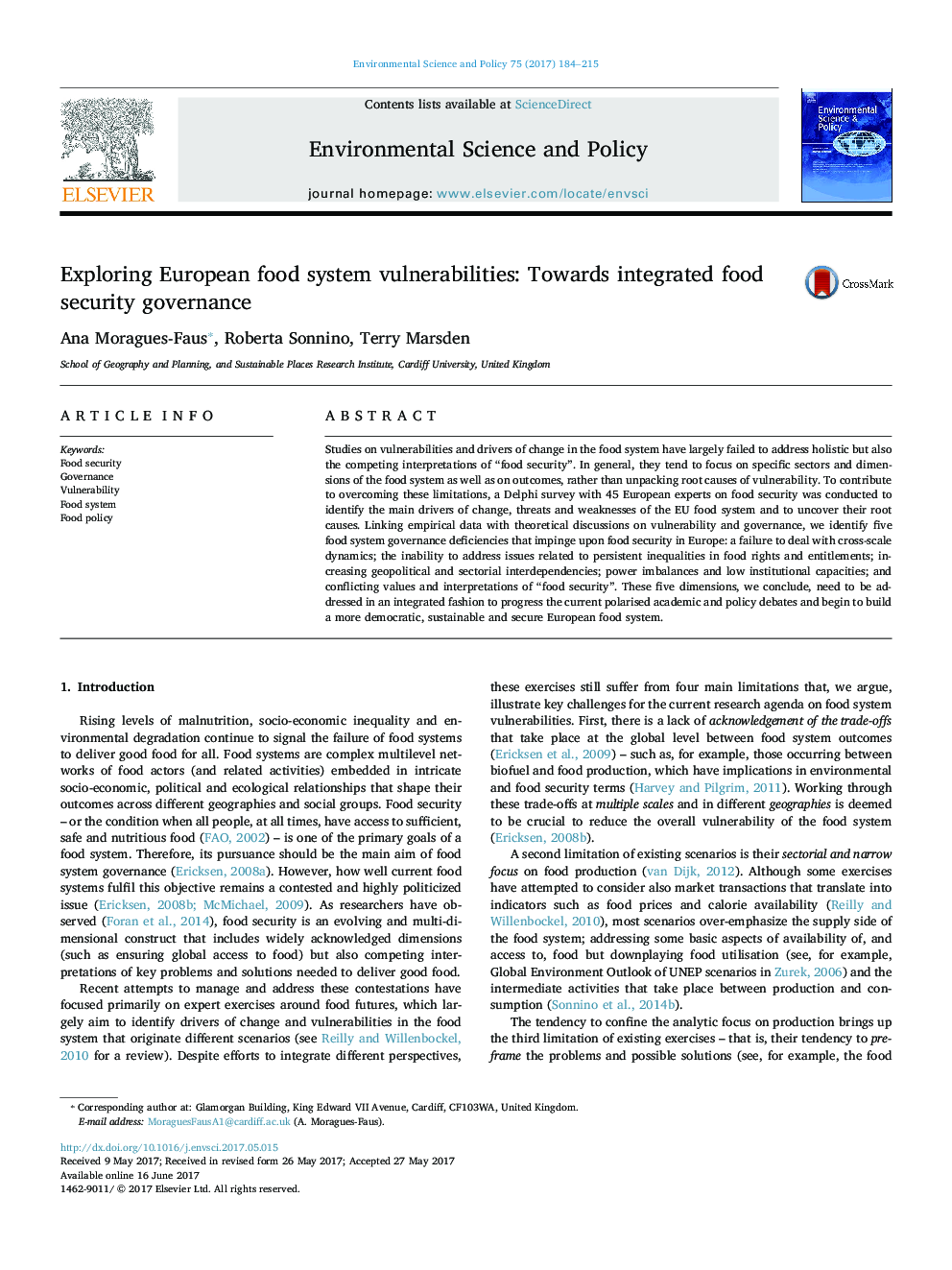| Article ID | Journal | Published Year | Pages | File Type |
|---|---|---|---|---|
| 5115805 | Environmental Science & Policy | 2017 | 32 Pages |
â¢Governance is a generator of food system vulnerabilities.â¢We identify 5 food system governance deficiencies that impinge upon food security.â¢These include mismanaged cross-scale, geopolitical and sectorial interdependencies.â¢And also overlooked unequal food rights, power imbalances and conflicting values.â¢An integrated governance approach is needed to build a more sustainable food system.
Studies on vulnerabilities and drivers of change in the food system have largely failed to address holistic but also the competing interpretations of “food security”. In general, they tend to focus on specific sectors and dimensions of the food system as well as on outcomes, rather than unpacking root causes of vulnerability. To contribute to overcoming these limitations, a Delphi survey with 45 European experts on food security was conducted to identify the main drivers of change, threats and weaknesses of the EU food system and to uncover their root causes. Linking empirical data with theoretical discussions on vulnerability and governance, we identify five food system governance deficiencies that impinge upon food security in Europe: a failure to deal with cross-scale dynamics; the inability to address issues related to persistent inequalities in food rights and entitlements; increasing geopolitical and sectorial interdependencies; power imbalances and low institutional capacities; and conflicting values and interpretations of “food security”. These five dimensions, we conclude, need to be addressed in an integrated fashion to progress the current polarised academic and policy debates and begin to build a more democratic, sustainable and secure European food system.
